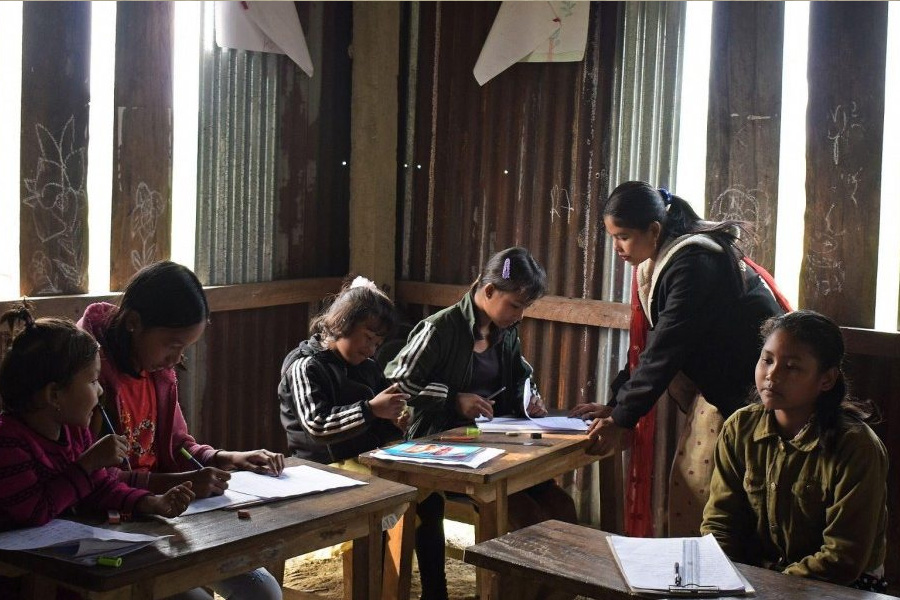
The Learning Ecosystem Augmentation Project aims to improve quality education in lower primary and middle schools in the region. How has it fared?
Authors
Deepanshu Mohan, Associate Professor of Economics and Director, Centre for New Economics Studies (CNES), Jindal School of Liberal Arts and Humanities, O.P. Jindal Global University, Sonipat, Haryana, India.
Jignesh Mistry, Senior Research Analyst, Centre for New Economics Studies, O.P. Jindal Global University, Sonipat, Haryana, India.
Ashika Thomas, Senior Research Analyst, Centre for New Economics Studies, O.P. Jindal Global University, Sonipat, Haryana, India.
Tavleen Kaur, Research Assistant, Centre for New Economics Studies, O. P. Jindal Global University, Sonipat, Haryana, India.
Hima Trisha, Research Assistant, Centre for New Economics Studies, O. P. Jindal Global University, Sonipat, Haryana, India.
Yashasvini Gupta, Research Analyst, Centre for New Economics Studies, O.P. Jindal Global University, Sonipat, Haryana, India
Summary
The Bodoland Territorial Region (BTR), located in an ecologically sensitive zone, shares a significant portion of its territory with the Bhutan border. The BTR has seen decades of political instability, inter-community conflict and subsequently remained underdeveloped across most socio-economic indicators.
Decades of violence in the region led to numerous deaths and injuries amongst security forces and civilians alike. Prolonged displacement of communities and the breakdown of governmental services also resulted in major access inequities, particularly to education for the children local communities.
The Learning Ecosystem Augmentation Project (LEAP) emerged as a response to the widespread learning challenges faced by the children and youth of communities in BTR. As a social organisation working in the region, the ant (the action northeast trust) launched its LEAP initiative back in 2019, aiming to improve quality education in lower primary and middle schools for 12 educational clusters.
The project aims to improve learning outcomes and teaching processes for more than 8,000 children in more than 120 government lower primary schools and another 15 middle schools by training the teachers and engaging the community, besides providing access to education for more than 1008 children through community run learning centres in forest areas bordering Bhutan where there is no access to government schools.
Published in: The Wire
To read the full article, please click here.


